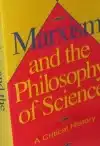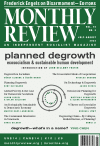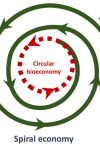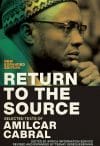Philosophy

“How is it,” Helena Sheehan asks, “that classical Marxist authors were able to address such a stunning array of issues”? The answer can be found, she writes, is in the totality of their intellectual efforts: “Marxism is the only intellectual tradition on the scene capable of embracing…what needs to be comprehended to understand and cope with our world.” | more…

Writing at the end of the nineteenth century, Frederick Engels foresaw that without disarmament, Europe would soon be plunged into war. Modern weaponry has made the question of disarmament even more urgent. In this month’s “Notes from the Editors,” the editors put forward the objectives for a contemporary socialist disarmament strategy. | more…

In the introduction to this summer’s special issue on “Planned Degrowth,” John Bellamy Foster outlines the major themes of degrowth thought, including, above all, a recognition of the need to challenge current notions of “growth” and “prosperity” and move toward a more sustainable model of human development, one that meets the needs of individuals and communities. This, Foster writes, requires a massive revolutionary shift in the social relations governing the means production and the prioritization of planning our economy around the survival of the species, rather than the endless drive to accumulation that has devastated the planet. | more…

There is a common misconception among critics that degrowth proponents do not engage with the question of technology, instead leaving the implementation of technological solutions to the planetary crisis to green growth advocates. Jason Hickel shows that not only is this narrative false, it obscures the possibilities for technology unfettered by capitalism. | more…

Historical materialism, in the dominant twentieth-century narrative in the West, is understood as confined to social sciences and humanities. However, John Bellamy Foster writes, Marx and Engels did not have such a limited conception, instead engaging with the natural sciences, providing insight into the dialectics of nature. | more…

In popular thought, the youth and student movements of France May 1968 have been linked with the thinkers of what is known as French theory. Gabriel Rockhill considers the actual, less-than-revolutionary actions of these popular philosophers in the student revolts, then turns our attention to a deeper question: Who benefits from drawing these tenuous connections? | more…

Helena Sheehan turns her incisive eye on the so-called anti-disinformation industry, and wondering whether the mainstream media is using a newfound interest in fact-checking, fake news, and disinformation studies to conceal deeper biases, ones that occlude the hidden ideologies deceiving much of the public. | more…

A classic collection of essays calling for decolonization through self-liberation
“For us,” said Amilcar Cabral, “freedom is an act of culture.” Guided by the concrete realities of his people, he called for a Return to the Source, a process of decolonization through “re-Africanization.” With a system of thought rooted in an African reading of Marx, Cabral was a deep-thinking revolutionary who applied the principles of decolonization as a dialectic task, and in so doing became one of the world’s most profoundly influential and effective theoreticians of anti–imperialist struggle. He translated abstract theories into agile praxis and in under just ten years steered the liberation of three–quarters

February’s Review of the Month confronts the new irrationalism and its reactionary tendencies, which find their roots in troubling philosophical and historical foundations. The answer, John Bellamy Foster writes, can be found in a return to historical materialism. | more…

The Half-Earth movement calls for rewilidng half the earth as a means of combating the planetary crisis. Brian Napoletano explores the implications of the Half-Earth approach as outlined Vettese and Pendergrass’s Half-Earth Socialism. | more…

This issue’s Review of the Month discusses Marx’s role as the foremost revolutionary critic of bourgeois Enlightenment humanism. To this day, his conception of “the universal metabolism of nature” remains a powerful antidote to the phantasmagoric “dark ecology” posited by today’s posthumanism. | more…

Pyotr Kondrashov takes a deep dive into Lenin’s understanding of social dialectics. This exploration gives rise to an approach to that places the active human subject squarely in the center of a revolutionary Marxism that goes “beyond Marx,” furthering the struggle for a liberated society. | more…











